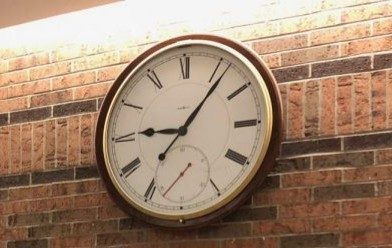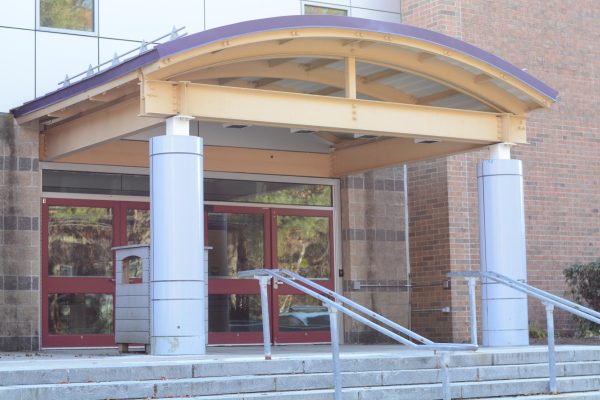Here’s why we shouldn’t have later start times

Clock hanging in the Bell Lobby
December 19, 2019
For the past two years, the School Committee has been trying to implement later start times for the entire Westford school district. Their main purpose in doing so is to relieve Westford Academy student stress and increase the amount of sleep high school students get. While I appreciate them trying to relieve our stress, I don’t believe shifting the time would resolve this problem.
Moving the start time does not give students extra time to sleep in; it simply shifts the day by half-an-hour. I personally see more cons to this decision than pros.
In order to alleviate student stress, the committee needs to instead focus on the amount of homework we are assigned per night. Challenge Success instituted a homework policy a year ago but I don’t think it is being followed by many teachers at school. By shifting the time, the committee is actually not dealing with the source of stress.
Instead of changing the time, the committee should find ways to decrease the amount of work students have by reviewing the homework policy. The amount of time the policy says a student should spend on homework serves simply as a suggestion. The limit for the amount of homework an honors class should get, as stated by the policy, is around 30 minutes. For me, adding that to the time it takes to study and prepare for the next day, it takes over an hour. This is just too much time to spend on one class since there are six other classes’ work to account for.
There should be a strict rule that states only a certain amount of time should be spent for each class. It is important for the rule to mention that homework and studying time should be coordinated to alleviate stress. There are so many other ideas the committee can explore to relieve stress instead of implementing a plan that would not deal with the workload.
Another aspect to the amount of time students spend on their school work, is procrastination. Most students get distracted by their phone while doing work and that isn’t something the committee can control. So, in some situations, the problem really isn’t the amount of homework assigned, but actually a student’s time-management skills. Tying it back to later start times, shifting the school day wouldn’t solve student procrastination.
The biological aspect the committee had presented, was that adolescents produce sleep hormones around midnight. By shifting the day back, students will stay up late completing their homework since they won’t get much time when they get back from school. So, students will be doing their school work while feeling tired, which takes away their efficiency, impacting their performance in school. In the end, students would get the same amount of sleep, which negates the whole purpose of changing the time.
Another con to this idea is that after-school activities will end later which means students would get less time to complete their homework before they start getting tired. Additionally, students who participate in sports would have an even harder time completing their homework at a reasonable hour.
Moreover, students who normally walk home would be affected by this decision. During the winter, after-school activities would end when it starts getting dark outside. This increases the risk of a potential accident.
The committee had mentioned the idea of shifting elementary schools to start at 7:30 AM. In the winter, it is usually darker around this time and could put at risk children who have to wait for their bus.
Another disadvantage to the idea is that many teachers have to drive to WA from other districts and, if the time is shifted, teachers would have to drive during a time when there is a lot of traffic. Also, teachers with children would not be able to stay after-school as much since the timing wouldn’t work out.
Additionally, looking at it from a parent’s point-of-view, it would be frustrating to change their entire schedule that they have been used to for many years.
The other con to later start times is the budget situation. In shifting the start times, more money would have to be cut for buses. With the budget situation already causing so tensions in town, more budget cuts for an idea which has more cons than pros does not seem like the right move to me.
Overall, I see more people being affected negatively than positively from a shift in start times. I believe we should keep our current timing since that is what Westford teachers, students and parents are used to. WA’s problem of student stress can be dealt with by exploring ideas that wouldn’t affect all of Westford.

















